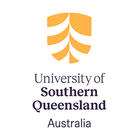Graduate Diploma of Professional Engineering (Aerospace Engineering)
Graduate Diploma of Professional Engineering (Aerospace Engineering)
Overview Embark on a career in aerospace engineering with UniSQ’s Graduate Diploma of Professional Engineering. Gain an understanding of advanced aerospace systems to ensure safe operation and proper maintenance of aircraft and space vehicles. UniSQ’s aerospace specialisation has two sub-disciplines – the Mechanical strand and the Electrical and Electronic strand….
Categories
COURSE DESCRIPTION
Overview
Embark on a career in aerospace engineering with UniSQ’s Graduate Diploma of Professional Engineering.
Gain an understanding of advanced aerospace systems to ensure safe operation and proper maintenance of aircraft and space vehicles.
UniSQ’s aerospace specialisation has two sub-disciplines – the Mechanical strand and the Electrical and Electronic strand. Choose specialisation courses that suit your career goals and explore thermofluids, aerodynamics, propulsion systems, aerospace transport structures, simulations, navigation systems, communication systems, or human-machine interfaces to gain more insight into flight safety, fuel and cost efficiency, and environmental impact.
Develop transferrable skills in engineering project management, communication, sustainable development, problem solving, and safety management.
You can choose to study aerospace engineering online or on-campus, full-time or part-time to suit your lifestyle and work commitments.
Further study
When you complete your Graduate Diploma of Professional Engineering you could take the credit from your studies and go on to complete the Master of Professional Engineering (Aerospace Engineering) and gain a Professional Engineer qualification by Engineering Australia.
Career outcomes
- Graduates may find work as an aerospace technician, aerospace electro-magnetic compatibility engineer, data analyst, aircraft mechanic, inspection manager, technical sales engineer, mechanical or electrical engineer, data engineer.
- Aerospace engineers may find work in diverse areas, such as aerodynamics and performance, communication and electrical systems, component EMI compatibility, flight simulators and flight management systems, environmental effects, fuels and lubricants, hydraulic systems, radar and satellite systems, risk management, cabin environment and cockpit ergonomics, noise and acoustic effects, propulsion systems, vehicle launch and recovery in Australian industry and Defence.
REQUIREMENTS
- Completion of an Australian university three or four-year Bachelor degree in the area of engineering in the relevant cognate specialisation (major), or equivalent. or
- Completion of an appropriate four-year embedded honours Bachelor degree in the area of engineering in a non-cognate specialisation (major field), or equivalent.
IELTS (Academic only) – Overall minimum score of 6.5 and no individual band score of less than 6.0; TOEFL (internet based) – Overall minimum score of 90 and no individual skills score of less than 20; Pearson (PTE Academic) – Overall score of 58 and no individual Communicative Skills score of less than 58; Cambridge C1 Advanced C2 Proficiency – Overall minimum score of 185 with no less than 185 in each skill.
EDUCATIONAL INSTITUTION
The University of Southern Queensland (UniSQ) is Australia’s leading regional university. With a strong focus on research, teaching and positive student experience, we provide high-quality flexible programs producing some of Australia’s highest-paid graduates4. Our students benefit from flexible options of on-campus studies, delivered across three campuses in Queensland, Australia, online and multimodal study options and through trusted national and international education partners. UniSQ is ranked in the top 400 universities2 and 58 young universities worldwide3. UniSQ is also rated as a QS 5 Star university and ranked 5/5 stars in Australia for graduate employment and graduate starting salaries1.1 QS Stars World University Rankings, 20242 Times Higher Education World Universities Rankings, 20243 Times Higher Education Young Universities Rankings, 20244 QILT Graduate Outcomes Survey, Postgraduate Results, 2021-2022




